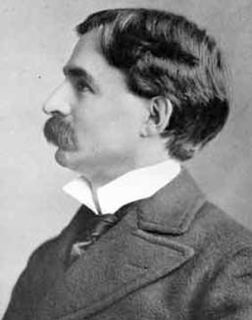A Quote by Mary Leakey
Theories come and go, but fundamental data always remains.
Quote Topics
Related Quotes
One of the myths about the Internet of Things is that companies have all the data they need, but their real challenge is making sense of it. In reality, the cost of collecting some kinds of data remains too high, the quality of the data isn't always good enough, and it remains difficult to integrate multiple data sources.
Facts and theories are different things, not rungs in a hierarchy of increasing certainty. Facts are the world's data. Theories are structures of ideas that explain and interpret facts. Facts do not go away while scientists debate rival theories for explaining them. Einstein's theory of gravitation replaced Newton's, but apples did not suspend themselves in mid-air pending the outcome.
The principal problem is that textual data and material remains are often incomplete and sometimes lack adequate context, in order to know precisely how they correlate. Sometimes all we can say is that the textual data and the material remains are probably related but how exactly can't be said until additional discoveries are made.
Between two thoughts try to be alert; look into the interval, the space in between. You will see no mind; that is your nature. For thoughts come and go - they are accidental - but that inner space always remains. Clouds gather and go, disappear - they are accidental - but the sky remains. You are the sky.
We are all trained to be data driven people, but no hard data exist about the future. Therefore, the only way to look into the future with any degree of accuracy is to use theory, statements of what causes what and why. If executives have the right theories in their heads, they can very quickly interpret market developments. They can identify what matters and why, and act accordingly. So we suggest decision-makers should start by gaining a deep understanding of the relevant collection of theories, and then be alert for signals that indicate certain types of developments.
For the theory-practice iteration to work, the scientist must be, as it were, mentally ambidextrous; fascinated equally on the one hand by possible meanings, theories, and tentative models to be induced from data and the practical reality of the real world, and on the other with the factual implications deducible from tentative theories, models and hypotheses.
I noticed affixed to a laboratory door the following words: "Les théories passent. Le Grenouille reste. [The theories pass. The frog remains.] &mdashJean Rostand, Carnets d'un biologiste." There is a risk that in the less severe discipline of criticism the result may turn out to be different; the theories will remain but the frog may disappear.



































